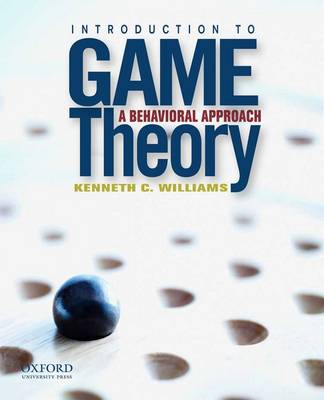Game theory studies the strategic interaction of people within various institutions such as political, economic, or other social institutions that are governed by a set or rules or principals. Game theory provides solutions to these strategic interactions by developing models based on assumptions about human behavior and the institution where the interaction occurs. Game theory is an interdisciplinary method to examine decision making in the fields of economics, political science, psychology, sociology, mathematics, computer programming, and biology.
This book is an introduction to game theory but differs from other excellent introduction game theory texts by taking a behavioral approach. This means that basic game theory concepts are explained by using results from laboratory experiments that examine how real people behave when they participate in the games that are modeled. This approach is referred to as behavioral game theory and it seeks to use psychological reasoning to explain deviations in the predictions of standard game theory models. Behavior game theory allows for the study of how human emotions affect decision making using the assumptions of game theory.
Although the study of game theory is somewhat technical because it uses mathematics to construct the various models, the intuition behind game theory is actually normative and nontechnical. This book takes a very nontechnical approach to the study of game theory so that only minimum math skills are needed to follow the discussion in the book. The importance of game theory lies in the deductive process of reasoning and understanding how to construct models of social interaction, and not the mathematics that are involved.
- ISBN10 0199837414
- ISBN13 9780199837410
- Publish Date 7 February 2013
- Publish Status Active
- Publish Country US
- Imprint Oxford University Press Inc
- Format Paperback
- Pages 264
- Language English
